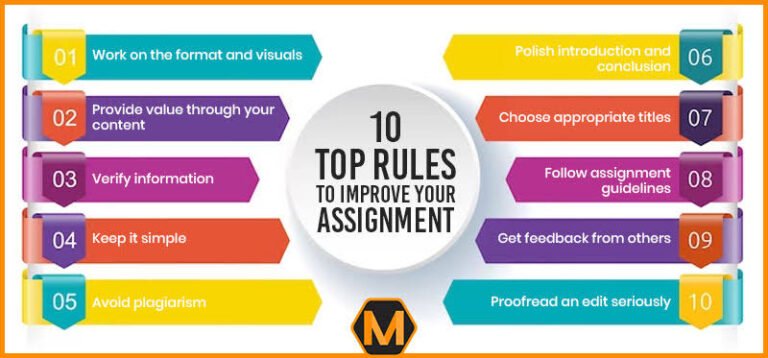Essential Tips for Choosing the Right Dementia Home Care Services
Understanding Dementia Home Care Services
What Is Dementia Home Care?
Dementia home care is all about bringing support and assistance right to the homes of people living with dementia. It’s an alternative to moving someone into a care facility. The goal is to allow individuals to remain in a familiar, comfortable environment while receiving the care they need. It can range from basic help with daily tasks to more specialized medical support, depending on the person’s specific situation. Finding reliable “elderly care near me” is a common first step for families exploring this option.
Types Of Services Offered
The range of services available under “dementia home care” can be pretty broad. Here’s a quick rundown:
- Personal Care: This includes help with bathing, dressing, eating, and using the toilet.
- Medication Management: Caregivers can assist with reminders and administration of medications.
- Companionship: Providing social interaction and emotional support to combat loneliness.
- Light Housekeeping: Assistance with chores like laundry, cleaning, and meal preparation.
- Skilled Nursing: For individuals needing medical care, such as wound care or injections.
The specific services included in a dementia home care plan should always be tailored to the individual’s needs and preferences. It’s not a one-size-fits-all situation.
Benefits Of Home Care For Dementia Patients
There are several reasons why families choose “dementia home care” over other options. One of the biggest is the comfort and familiarity of home. This can reduce anxiety and confusion for someone with dementia. Other benefits include:
- Personalized Attention: Caregivers can focus solely on the individual’s needs.
- Maintaining Independence: Home care allows individuals to retain some control over their daily routines.
- Family Involvement: It’s easier for family members to stay involved in the person’s care.
- Cost-Effectiveness: In some cases, home care can be more affordable than residential care, especially when “palliative home care” is needed.
Assessing Your Loved One’s Needs
Before you even start looking at “elderly care near me” or specifically “dementia home care” options, you really need to understand what your loved one actually needs. It’s not just about finding someone to be there; it’s about finding the right someone. This involves a pretty thorough assessment of their current abilities, challenges, and medical situation. It’s a bit of work, but it’s super important for making sure they get the best possible care.
Evaluating Daily Living Activities
Okay, so first things first: what can they still do on their own? And what are they struggling with? This isn’t about judging them; it’s about getting a clear picture. Think about things like:
- Bathing and dressing
- Preparing meals
- Managing medications
- Using the toilet
- Moving around the house
The goal is to identify where they need help so you can find a caregiver who can provide it. Maybe they’re fine with cooking but need help remembering to take their pills. Or maybe they can dress themselves but struggle with buttons. Every little bit of information helps.
Identifying Behavioral Challenges
Dementia can bring on some tough behavioral changes. It’s not always easy to deal with, and it’s important to be honest about what’s happening. Are they experiencing:
- Wandering or getting lost?
- Aggression or agitation?
- Confusion or disorientation?
- Sleep disturbances?
- Repetitive behaviors?
These behaviors can be really challenging for caregivers, so you need to find someone who has experience dealing with them. Some “dementia home care” services specialize in managing these types of behaviors, and it’s worth looking into.
Considering Medical Requirements
What are their medical needs? Do they have any other health conditions besides dementia? Do they need help with:
- Administering medications (injections, etc.)?
- Monitoring vital signs?
- Managing pain?
- Attending doctor’s appointments?
If they have complex medical needs, you might even want to consider “palliative home care” options. It’s all about making sure they’re comfortable and getting the medical support they need. It’s also important to have all medical information available for the caregiver, so they can provide the best care possible.
It’s easy to get overwhelmed when assessing your loved one’s needs. Remember to take it one step at a time and focus on gathering as much information as possible. This will help you find the right care provider and create a care plan that meets their specific needs.
Researching Care Providers
Checking Credentials And Certifications
When you’re looking for dementia home care, it’s really important to check out the credentials and certifications of any potential caregivers or agencies. You want to make sure they have the right training and qualifications to provide the best possible care. It’s not just about finding someone nice; it’s about finding someone competent and trustworthy. For example, look for certifications in dementia care, first aid, and CPR. Also, verify that the agency is licensed and insured. This protects both your loved one and you.
- Verify licenses and certifications.
- Check for specialized dementia care training.
- Confirm insurance coverage.
Reading Reviews And Testimonials
Reviews and testimonials can give you a real sense of what other families think about a particular caregiver or agency. Don’t just rely on the information provided by the company itself; look for independent reviews on sites like Google, Yelp, or Caring.com. Pay attention to both the positive and negative feedback. Are there recurring themes? Do people consistently praise the caregiver’s compassion, or do they complain about communication issues? Remember that every family’s experience is different, but reviews can provide valuable insights.
Interviewing Potential Caregivers
Interviewing potential caregivers is a must. This is your chance to get to know them, assess their skills, and see if they’re a good fit for your loved one. Prepare a list of questions in advance. Ask about their experience with dementia care, their approach to handling challenging behaviors, and their availability. It’s also important to observe how they interact with your loved one. Do they seem patient and understanding? Do they communicate effectively? Trust your gut. You’re looking for someone who not only has the right qualifications but also has the right personality and attitude. When exploring elderly care near me, I always make sure to ask about their experience with palliative home care, even if it’s not needed right away. It’s good to know they have that background.
Finding the right caregiver can feel overwhelming, but it’s worth the effort. Take your time, do your research, and trust your instincts. The goal is to find someone who can provide compassionate, high-quality care and improve your loved one’s quality of life.
Evaluating Care Plans
Customizing Care To Individual Needs
When you’re looking at dementia home care, it’s super important that the care plan isn’t just some generic thing. It needs to be tailored to your loved one’s specific situation. What works for one person might not work at all for another. Think about their personality, their past, their likes and dislikes. Does your mom love gardening? Maybe the caregiver can help her with that. Does your dad get anxious in the evenings? The plan should address that with calming activities. It’s all about making sure the care feels personal and meaningful. This is especially important when considering elderly care near me, as local providers should be familiar with community resources and activities that can be incorporated into the care plan.
Incorporating Family Involvement
Family involvement is key. You know your loved one best, so your input is invaluable. The care plan shouldn’t be something that’s just handed down from on high; it should be a collaborative effort. Make sure there are regular meetings with the care team to discuss progress, challenges, and any changes that need to be made. And don’t be afraid to speak up if you have concerns or suggestions. The best dementia home care plans are the ones that treat the family as part of the care team. If you’re also considering palliative home care, family involvement becomes even more critical, as it ensures the patient’s wishes and values are respected throughout the care process.
Setting Goals And Expectations
It’s important to have realistic goals and expectations for the care plan. What do you hope to achieve? Are you aiming to maintain your loved one’s independence for as long as possible? Are you focused on managing specific symptoms? Whatever your goals, make sure they’re clearly defined and communicated to everyone involved. And remember, things can change over time, so be prepared to adjust the plan as needed. It’s also a good idea to have a frank discussion about what’s realistic in terms of improvement or stabilization. Sometimes, the goal is simply to provide comfort and support, and that’s okay too.
It’s easy to get caught up in the details of daily care, but taking a step back to review the overall goals and expectations can help keep everyone on the same page. This ensures that the care being provided aligns with the family’s values and the patient’s needs, leading to a more positive and effective care experience.
Understanding Costs And Payment Options
Exploring Insurance Coverage
Okay, so let’s talk money. Figuring out how to pay for dementia home care can be a headache, but it’s a necessary one. First up: insurance. See what your loved one’s health insurance covers. Some policies might cover certain aspects of dementia home care, especially if it’s related to medical needs. Don’t just assume it doesn’t cover anything; actually call and ask. It’s also worth checking if they have long-term care insurance, as that’s specifically designed to help with these kinds of costs. It’s a bit of a maze, but worth exploring. You might be surprised at what’s available. For example, some plans might cover a certain number of hours of care per week, or specific services like occupational therapy at home. It all depends on the policy, so get the details.
Assessing Out-Of-Pocket Expenses
Even with insurance, you’re probably going to have some out-of-pocket costs. This is where you need to get real about budgeting. Think about things like caregiver fees, medical supplies, and any home modifications you might need to make. It’s a good idea to create a spreadsheet to track all these expenses. Look at the cost of “elderly care near me” to get an idea of the market rate. Also, consider that the level of care needed will impact the cost. Someone who needs 24/7 supervision is going to cost more than someone who just needs a few hours of help a day. Don’t forget to factor in potential increases in costs over time, especially if your loved one’s condition progresses.
Finding Financial Assistance Programs
If insurance and your own savings aren’t enough, there are other options. Look into government programs like Medicaid, which might offer assistance with “dementia home care” costs, but eligibility requirements can be strict. There are also non-profit organizations that offer financial aid or grants for families caring for loved ones with dementia. It takes some digging, but these programs can make a big difference. Also, explore veteran’s benefits if your loved one is a veteran, as they may be eligible for aid and attendance benefits that can help cover the cost of “palliative home care”.
It’s important to start planning for these costs as early as possible. The sooner you understand the financial implications, the better prepared you’ll be to provide the best possible care for your loved one without draining your own resources. Don’t be afraid to ask for help from financial advisors or social workers who specialize in elder care.
Ensuring Quality Of Care
It’s super important to keep an eye on the quality of care your loved one is receiving. You want to make sure they’re safe, comfortable, and getting the support they need. Finding the right elderly care near me can be a challenge, but it’s worth the effort to ensure their well-being. This is especially true with dementia home care, where consistent and attentive care is key.
Monitoring Caregiver Performance
Keeping tabs on how the caregiver is doing is a must. It’s not about distrust; it’s about making sure everything is running smoothly.
- Observe interactions between the caregiver and your loved one. Are they patient and respectful?
- Check the caregiver’s log or notes. Are they documenting activities and any changes in your loved one’s condition?
- Talk to your loved one (if possible) about their experiences with the caregiver. Do they feel comfortable and safe?
It’s a good idea to have regular check-ins, both scheduled and unscheduled, to get a feel for the day-to-day care. This helps you identify any potential issues early on.
Establishing Communication Channels
Open communication is key. You need to be able to talk to the caregiver and the care agency (if applicable) easily and often. This ensures everyone is on the same page and any concerns can be addressed quickly.
- Set up a regular communication schedule (e.g., weekly phone calls, daily text updates).
- Establish a clear protocol for reporting emergencies or urgent issues.
- Make sure everyone has the contact information for all relevant parties (family members, doctors, care agency).
Regularly Reviewing Care Plans
Care plans aren’t set in stone. They need to be reviewed and adjusted as your loved one’s needs change. This is especially important as dementia progresses. Don’t forget that palliative home care might become necessary as well.
- Schedule regular meetings with the caregiver, family members, and healthcare professionals to review the care plan.
- Assess whether the current care plan is meeting your loved one’s needs and goals.
- Make adjustments to the care plan as needed, based on changes in your loved one’s condition or preferences.
| Review Frequency | Focus | Participants |
| Monthly | Medication, daily activities | Caregiver, family |
| Quarterly | Overall well-being, behavioral changes | Caregiver, family, doctor |
| Annually | Long-term goals, financial planning | Caregiver, family, doctor, financial advisor |
Planning For Emergencies
It’s easy to overlook emergency planning when focusing on daily care, but it’s super important, especially with dementia home care. Things can change quickly, and being prepared can make a huge difference. Thinking about potential crises and having a plan in place provides peace of mind for everyone involved. It’s about more than just having a list of numbers; it’s about knowing what to do in different situations.
Creating An Emergency Contact List
Having a readily available emergency contact list is a must. This isn’t just for medical emergencies; it’s for any situation where quick communication is needed. Make sure the list is easily accessible to everyone involved in the care, including family members, caregivers, and neighbors.
- Primary caregiver
- Family members (with contact preferences)
- Doctors and specialists
- Local emergency services
Developing A Safety Plan
A safety plan goes beyond just contact information. It outlines specific steps to take in various emergency scenarios. This could include anything from a fall to a fire to a sudden change in behavior. The plan should be tailored to the individual’s needs and abilities, and it should be regularly reviewed and updated. If you are looking for “elderly care near me“, make sure they have a safety plan in place.
Training Caregivers For Crisis Situations
Caregivers need to be prepared to handle emergencies effectively. This means providing them with the necessary training and resources to respond appropriately. Training should cover basic first aid, CPR, and how to manage common dementia-related crises, such as wandering or agitation. It’s also important to ensure they know how to contact emergency services and communicate important information clearly. Palliative home care can also provide guidance on managing end-of-life emergencies.
Having a well-trained caregiver can significantly improve the outcome of an emergency situation. They are the first line of defense and their actions can make a real difference. Regular training and refresher courses are essential to keep their skills sharp and their knowledge up-to-date.
Wrapping It Up
Choosing the right home care for someone with dementia can feel overwhelming. But it doesn’t have to be. Start by thinking about what your loved one really needs and what makes them comfortable. Talk to different services, ask questions, and trust your gut. It’s all about finding a good fit for both your family and the caregiver. Remember, you’re not alone in this. Many families are in the same boat, and there are resources out there to help. Take your time, do your homework, and you’ll find the right support.






